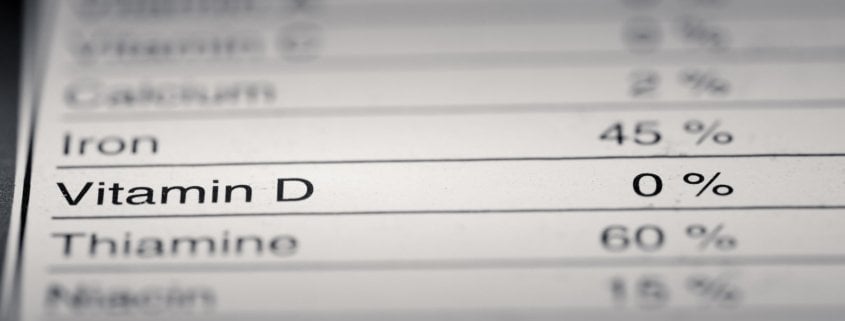Study: Excess Body Fat Correlates to Low Vitamin D Levels
Vitamin D, also known as the sunshine vitamin, is a fat-soluble nutrient produced the body naturally through regular exposure to the sun. Aside from sunshine, Vitamin D is also sourced from tuna, salmon, eggs, and sardines. While it is known that Vitamin D helps the body absorb Calcium effectively, recent studies suggest that it has a critical role in protecting the body against diabetes, heart failure, bone health, cancer, and respiratory tract infection.
The Link Between Vitamin D and Health
Researchers from the Leiden University Medical Center and VU University Medical Center presented their findings regarding the link between Vitamin D and excess fat. The study examined the data from the Netherlands Epidemiology of Obesity involving men and women between the ages of 45 and 65. The researchers noted that the lower levels of Vitamin D are correlated with the total body fat and liver fat among men and abdominal fat among women. The research suggests that individuals who have higher amounts of abdominal fat are at risk of Vitamin D deficiency; thus they should consider getting their Vitamin D levels checked.
Americans Suffer from Low Vitamin D Levels
While Vitamin D is one of the essential vitamins that the body needs, many studies noted that a large percentage of the population is deficient. In the survey conducted by the Center for Disease Control (CDC), about 8.1% of the people in the United States suffer from Vitamin D deficiency. This equates to a gap in one out of 10 Americans. For the body to carry its natural physiological function, it is crucial to take in between 400 and 800 IU (10 to 20 micrograms) per day. Higher intake of Vitamin D will also benefit the body.
This is the reason why the Food and Drug Administration has approved the fortification of milk and other beverages with Vitamin D. In fact, fortifying milk with Vitamin D has been done since the 1930s, but it is only now that people are taking heed. While many food companies are strengthening their products with Vitamin D, there is still a challenge when it comes to introducing more of it on products.
Food Manufacturers Jumping on Vitamin D Bandwagon
The deficiency of Vitamin D among the broader American population has led to the manufacturers to create products that are infused with Vitamin D. Products that are fortified with Vitamin D should be labeled appropriately.
Vitamin D provides an off-taste to the product; thus ingredients place importance on creating custom premixes and employing the right blending techniques to avoid the lousy mouthfeel of Vitamin D. This is to ensure that milk products still taste the same, especially among children. What many food companies do not know about is GrandFusion…NutriFusion developed GrandFusion blends to concentrate naturally occurring, plant-based vitamins. GrandFusion blends include plant-based versions of Vitamin D, Vitamin D2, and Vitamin D3. The blends are so concentrated that the consumer will never taste the product when adequately blended into the product.
But with the food and beverage manufacturers advertising that their products are fortified with Vitamin D, are the consumers paying attention to the labels or not? We are still not sure, and after almost 100 years of enriching milk, we still see low vitamin D levels. Only time will tell if these new Vitamin D infused products well attract attention and grow into essential products for consumers.
Inspired by www.fooddive.com






